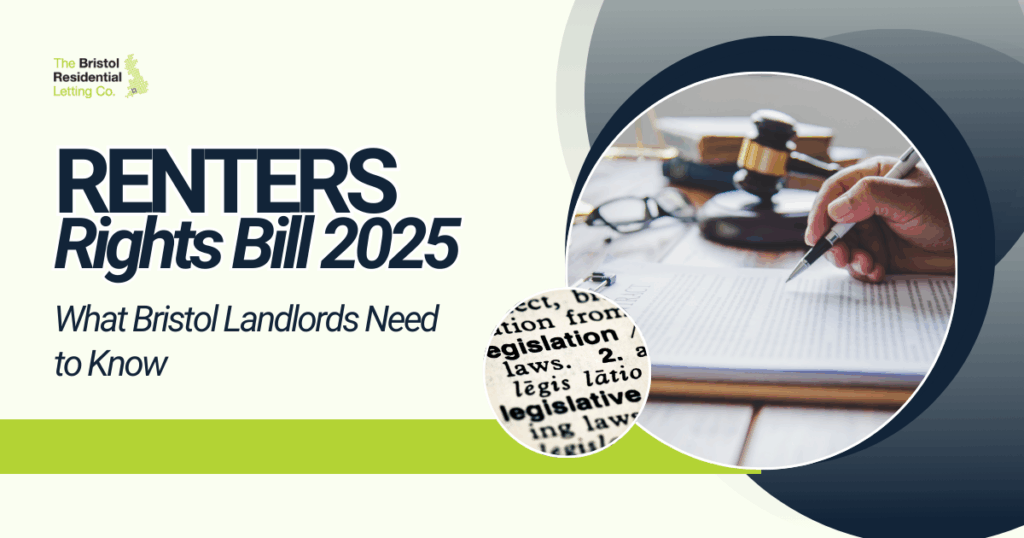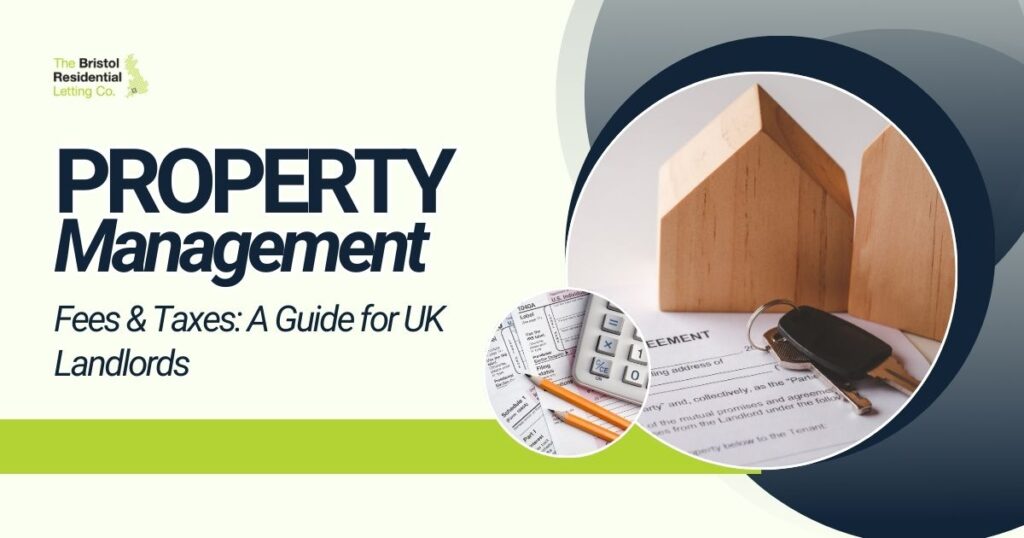Sorry, we couldn't find any posts. Please try a different search.
Share Article
Contents
Renting in England is entering a new phase. The Renters’ Rights Bill has now passed into law and is officially the Renters’ Rights Act. Understandably, this has created a lot of discussion and debate — but for landlords, the key message right now is simple:
It is business as usual. You do not need to take any immediate action.
Demand for rental homes in Bristol remains strong, and the private rented sector continues to play a vital role in housing people across the city. While the landscape is changing, there is no reason for concern. Our team is here to manage these changes for you.
Business as Usual – For Now
Where Things Stand Today
Although the Act is now law, the government has not yet confirmed the final start dates or detailed guidance for the new rules — including the removal of Section 21. Until those timelines and instructions are published, the current system continues exactly as it is today.
All existing possession processes, tenancy structures and requirements remain in place.
Why Landlords Should Not Be Alarmed
Bristol continues to face strong demand for high quality rental homes. Even as legislation evolves, the private rented sector is essential to meeting the city’s housing needs.
If anything, increased regulation may discourage new entrants into the market. This could reduce supply in the long term, enhancing returns for committed, compliant landlords — particularly those working with a professional managing agent.
Our Approach at The Bristol Residential Letting Co.


We Are All Over This
We have followed this legislation from the very beginning. While some details are still to be published, we are fully prepared to adapt our processes, documentation and management practices as soon as the government releases the final guidance.
We already operate with fairness, transparency and proactive management at the heart of what we do. Our approach continues to support both landlords and tenants, and aligns with the spirit of this legislation.
What This Means for Your Managed Property
If we manage your property, you do not need to make any changes. We will handle everything — from updated tenancy agreements to new compliance requirements — once the government releases the necessary detail.
Our goal is simple: keep your property compliant without causing disruption to your investment.
Key Changes in the Renters’ Rights Act
Below are the main headline changes introduced by the Act, along with what they mean in practice for landlords.
1. End of Section 21 ‘No-Fault’ Evictions
What’s changing:
Section 21 will be abolished once the relevant parts of the Act come into force. Landlords will no longer be able to end a tenancy without giving a reason.
Stronger Section 8 grounds:
To balance this change, the Section 8 possession route will be strengthened. Landlords will still be able to regain possession for clear, legitimate reasons, such as:
- wanting to sell the property
- moving into the property themselves
- rent arrears
- anti-social behaviour
All applications will rely on the court system, making accurate paperwork and proper evidence essential.
2. End of Fixed Term Tenancies
Assured periodic tenancies from the start:
Under the Act, all new tenancies will begin as periodic. There will be no 6- or 12-month fixed terms. Instead, the tenancy will roll on month to month (or week to week depending on the rent schedule).
Tenant notice periods:
Tenants will be able to end the tenancy at any time by giving two months’ notice.
This means planning for renewals and void periods becomes a little more fluid, and maintaining strong relationships with tenants will be more important than ever.
3. Pet Requests Must Be Considered Fairly
Tenants will have the right to request permission to keep a pet. Landlords must consider the request reasonably and cannot refuse without a genuine, legitimate reason.
You can still say no where appropriate — for example, if building rules prohibit pets, or if the property is unsuitable — but decisions will need to be clearly documented.
4. Rent Increases Through Section 13 Only
Rent increase clauses in tenancy agreements will no longer be relied upon in the same way.
To raise rent, landlords must use the Section 13 process. This creates a consistent, regulated approach.
Tenant right to challenge:
Tenants may refer a proposed rent increase to a First-tier Tribunal if they believe it is above market level, further highlighting the need to set fair, evidence-based rents.
5. Private Rented Sector Database and Redress Scheme
New national database:
Landlords (or managing agents on their behalf) will be required to register on the Private Rented Sector Database before a property can be marketed. The database will list all landlords and rental properties in England.
Mandatory redress scheme:
Private landlords will need to join a government-approved redress scheme. This gives tenants access to a free, independent resolution process for complaints, without needing to go to court.
If we manage your property, we will handle all registration requirements when the system launches.
How These Changes Affect Landlords
More Rights for Tenants, Continued Protections for Landlords
The Act strengthens tenants’ rights around security, rent fairness and pets. But landlords remain fully protected where there are legitimate grounds for possession. The important difference is that the process becomes more structured and court-led.
Compliance Will Matter More Than Ever
Accurate agreements, documented inspections, rent records and prompt communication will all become increasingly important.
Partnering with an experienced managing agent removes this administrative and legal burden.
Protecting Your Rental Income
Rent Protection and Legal Expenses Cover
As the system leans more on the courts, some landlords may want an added layer of security. We have secured a market-leading Rent Protection and Legal Expenses product that can:
- cover unpaid rent
- cover legal costs for regaining possession
We will share full details shortly — with no pressure to take it.
Looking Ahead: What Happens Next
The government will announce the final guidance and implementation dates over the coming months. We will monitor every update and tell you when action is required.
Our Promise to Bristol Landlords
We will:
- interpret the legislation for you
- update our processes
- keep your property compliant
- minimise disruption to your rental income
Demand for rental homes in Bristol remains high, and with a professional approach, the sector continues to offer strong returns.
Have Questions or Need Reassurance?
If you want to talk through how the Renters’ Rights Act may affect your specific property, we are here to help.
Fill in the form below, we will be happy to offer guidance










